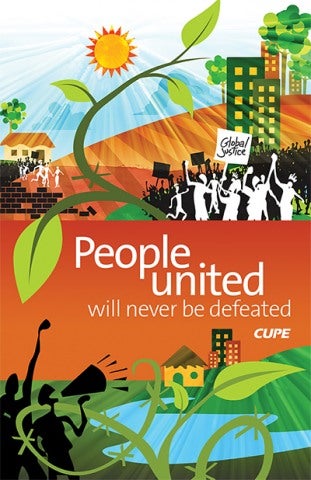
Kelti Cameron | International Solidarity Officer
The labour movement has engaged in international solidarity long before we described the world as “globalized”, and before corporate sweatshops and supply chains were exposed and expanding across borders.
When workers in Chicago in the late 1800s struggled to have an eight hour working day recognized, workers around the world, including City of Toronto workers, took up their struggle. When migrant Mexican and Filipino workers in California launched a five year boycott and strike action against grape growers in the 1960’s, CUPE sent leaders to participate in an international delegation.
Unions, including CUPE, have supported social and political movements around the world when led by people challenging oppressive governments.
When the anti-apartheid movement in South Africa was gaining momentum in the 1970s and 1980s, CUPE members across the country were engaged in efforts to expose Canadian corporate interests in the racist system. Our solidarity has often included challenging the Canadian government’s interests in other countries as we did when Canada aggressively negotiated a Free Trade Agreement with Colombia.
The lessons learned when doing international solidarity work guided us when CUPE set up the Global Justice Fund (formerly the Union Aid Fund) in the early 1990’s.
Today we support worker to worker, union to union solidarity in Colombia, Nicaragua, Honduras, Cuba and the Philippines because we believe we have a great deal to learn from workers and unions around the world. It is through exchanges and building relationships that we create a just world that serves the interests of the majority of the worlds’ people.



